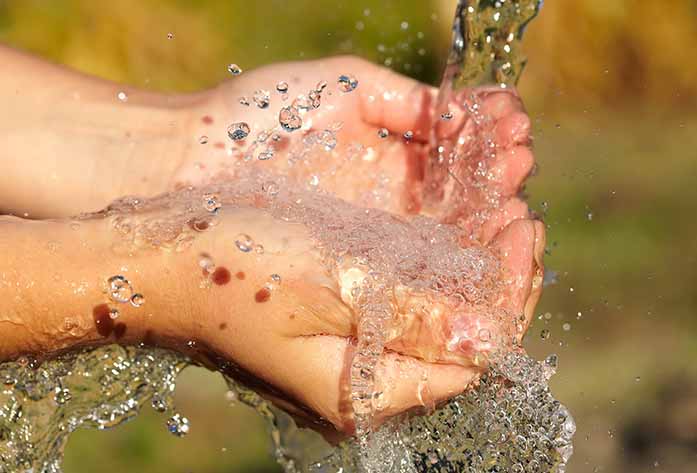A UI faculty member aims to use a fellowship in Washington, D.C., to assist his research and teaching.
By Charles Peckman
For David Cwiertny, a University of Iowa associate professor of civil/environmental engineering, water is more than something we use every day — it is the source of his research.
Cwiertny teaches classes primarily targeted to engineers focusing on topics related to water quality. He also teaches a first-year seminar, which he refers to as “a crash course on water and its impact on our everyday life.” He also acts as the director of the Environmental Policy Research Program at the UI.
Outside of the classroom, Cwiertny has been chosen to serve on the staff for the U.S. House Committee on Energy and Commerce.
Cwiertny said the committee has legislative oversight over many energy resources.
“I’m going to be working closely with energy and power in the economy and interacting with federal agencies such as the [Environmental Protection Agency],” he said. “That’s just one example of someone we regularly dialogue with.”
This opportunity came from the American Association for the Advancement of Science’s science and technology fellowships. Cwiertny said this group is a very large interdisciplinary organization that aims to “engage and improve the role of science in everyday life.”
Cwiertny said the group was established to put people with expertise in areas such as science, space, and education in contact with Washington, D.C.
Candidates, Cwiertny said, get matched with a senator or committee, and are then put in an office on Capitol Hill. Having scientific minds on the staffs of committees brings “evidence-based decision-making to these organizations.”
To Cwiertny, the addition of these advisers also improves the role science plays in everyday life, because decisions are being looked at through a scientific lens as well as a political one.
Although being on the committee is an honor, to Cwiertny, the real honor comes once he returns to the UI.
“Many people come to D.C. to stay in the political sphere,” he said. “I’m not; I’m coming back to the UI with what I’ve learned in order to show my students real-life applications of science.”
This “cross-over,” in terms of policymaking and science, will hopefully influence students to become interested in topics outside their own discipline, he said.
“I’m working hard to break down ‘academic silos’; that’s how problems get solved,” Cwiertny said.
Katherine Peter, a UI graduate student who has worked with Cwiertny, described him as a “one in a million adviser.”

Peter’s own research, which focuses on the development of nano-enabled technology for water treatment, has allowed her to work with Cwiertny this year.
“[Cwiertny] is enthusiastic and encouraging. He is an amazing scientist, but he also finds applications for his students,” she said. “It is important to find that balance.”
Kathryn Klarich, another UI graduate student who works with Cwiertny, described him as “super energetic and ambitious.”
Klarich’s work focuses on pesticides in drinking water. She has been doing field tests on water to see how well pesticides are removed. Klarich also simulates water-treatment processes in an attempt to remove pesticides from the water.
“Dave is passionate. He meets with his students and makes time for all of us,” Klarich said.
Sometimes, she said, it seems as though Cwiertny is “juggling 25 things at once.”







